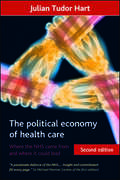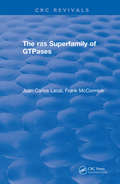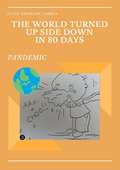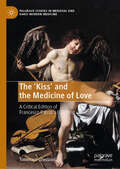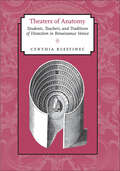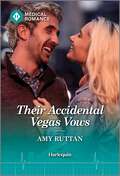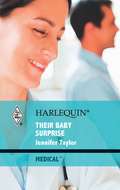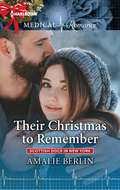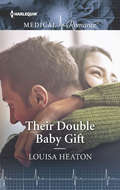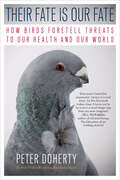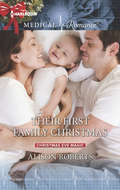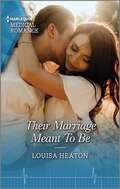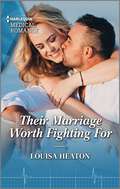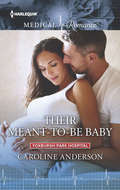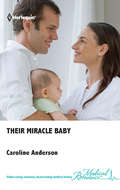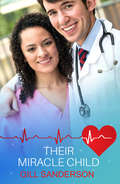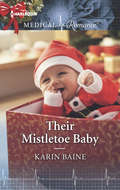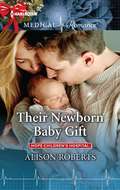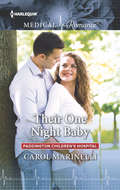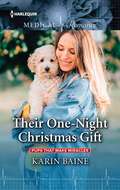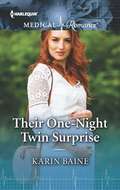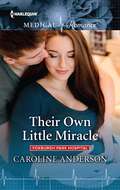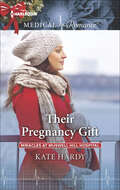- Table View
- List View
The political economy of health care: Where the NHS came from and where it could lead (Health and Society series)
by Julian Tudor HartWith a foreword by Tony Benn. Drawing on clinical experience dating from the birth of the NHS in 1948, Julian Tudor Hart, a politically active GP in a Welsh coal mining community, charts the progress of the NHS from its 19th century origins in workers' mutual aid societies, to its current forced return to the market. His starting point is a detailed analysis of how clinical decisions are made. He explores the changing social relationships in the NHS as a gift economy, how these may be affected by reducing care to commodity status, and the new directions they might take if the NHS resumed progress independently from the market. This edition of this bestselling book has been entirely rewritten with two new chapters, and includes new material on resistance to that world-wide process. The essential principle in the book is that patients need to develop as active citizens and co-producers of health gain in a humanising society and the author's aim is to promote it wherever people recognise that pursuit of profit may be a brake on rational progress.
The ras Superfamily of GTPases (CRC Press Revivals)
by Juan Carlos Lacal Frank Patrick McCormickThe ras Superfamily of GTPases presents the most comprehensive compilation of information available regarding aspects of the putative function of small ras-related GTPases. The book's chapters were written by the world's most prominent scientists in this field and cover such topics as the structure and properties of ras proteins, ras function, the ras superfamily in general, and the functional regulation of ras and ras-related GTPases. The book will benefit cell biologists, oncologists, neurobiologists, molecular biologists, and others interested in the topic.
The world turned upside down in 80 days: PANDEMIC
by Julio Andrade LarreaThis is a testimony of so many that there will be, of how I , one of the 7500 million inhabitants of our planet earth, have had to face and live a pandemic, for which I have been little or not at all prepared and how I lived it, in my own world and environment. If there is something that has made us human beings feel equal for the first time, it has been this virus, which has not distinguished between citizens of the world. Poor or rich, black or white, yellow or brown, Christian, Muslim, Jew or atheist, educated or uneducated, tall or short, fat or thin, young or old, male or female, from the sea or the mountains etc. We have all been affected equally and we have all been led to live days of anguish, desolation, pain, fear and even terror before a situation so unexpected and so little understood. How are we going to live after all this is over? If it ends. How will our lifestyle change from here on? The answers keep leading us into an uncertainty of a post-traumatic situation. This book is a testimony of the daily experiences at home and at hospital where I work as an anaesthesiologist. Sometimes dramatic , sometimes with humor ......
The ‘Kiss’ and the Medicine of Love: A Critical Edition of Francesco Patrizi’s Il Delfino (Palgrave Studies in Medieval and Early Modern Medicine)
by Tommaso GhezzaniThis is a revised critical edition of philosopher and scientist, Francesco Patrizi's manuscript, Il Delfino, overo del bacio (c.1555), with an English translation and commentary. Il Delfino, or ‘The Kiss’ survives in a single manuscript, compiled by an assistant and interspersed with autograph corrections by Patrizi himself. The only modern critical edition of the text, edited by Danilo Aguzzi Barbagli (1975), is known to contain many errors that prevent a correct understanding of the work. This book therefore fills this historiographical gap and at the same time provides a reliable text for further translations of Patrizi's work into other languages.
Theaters of Anatomy: Students, Teachers, and Traditions of Dissection in Renaissance Venice
by Cynthia KlestinecOf enduring historical and contemporary interest, the anatomy theater is where students of the human body learn to isolate structures in decaying remains, scrutinize their parts, and assess their importance. Taking a new look at the history of anatomy, Cynthia Klestinec places public dissections alongside private ones to show how the anatomical theater was both a space of philosophical learning, which contributed to a deeper scientific analysis of the body, and a place where students learned to behave, not with ghoulish curiosity, but rather in a civil manner toward their teachers, their peers, and the corpse. Klestinec argues that the drama of public dissection in the Renaissance (which on occasion included musical accompaniment) served as a ploy to attract students to anatomical study by way of anatomy’s philosophical dimensions rather than its empirical offerings. While these venues have been the focus of much scholarship, the private traditions of anatomy comprise a neglected and crucial element of anatomical inquiry. Klestinec shows that in public anatomies, amid an increasingly diverse audience—including students and professors, fishmongers and shoemakers—anatomists emphasized the conceptual framework of natural philosophy, whereas private lessons afforded novel visual experiences where students learned about dissection, observed anatomical particulars, considered surgical interventions, and eventually speculated on the mechanical properties of physiological functions. Theaters of Anatomy focuses on the post-Vesalian era, the often-overlooked period in the history of anatomy after the famed Andreas Vesalius left the University of Padua. Drawing on the letters and testimony of Padua's medical students, Klestinec charts a new history of anatomy in the Renaissance, one that characterizes the role of the anatomy theater and reconsiders the pedagogical debates and educational structure behind human dissection.
Their Accidental Vegas Vows (Jet Set Docs)
by Amy RuttanIn this Jet Set Docs story by Amy Ruttan, it&’s Vegas, baby! When EMT Grace wakes up in bed with her colleague—and his ring on her finger—they fake their relationship to prevent a scandal. But can they ignore the sizzling-hot chemistry between them?WAKING UP MARRIED! When EMT Grace wakes up in Vegas, she&’s shocked to find her gorgeous but guarded colleague Jonah in her bed…and his wedding ring on her finger! Especially as Grace had sworn off romance after her last workplace relationship ended in disaster. So having a husband—even charming Jonah, who gives her butterflies—is not ideal! Grace fears another hospital scandal, and soon she&’s asking Jonah to keep up their accidental marriage. After all, their vows still stand…but what about the undeniable chemistry that bound them to begin with?From Harlequin Medical: Life and love in the world of modern medicine. Jet Set Docs
Their Baby Surprise
by Jennifer TaylorBy rights, single mother Dr. Rachel Mackenzie and widower Dr. Matthew Thompson should be at odds--the disastrous non-wedding of their respective children has thrown the village of Dalverston into turmoil! But Matt and Rachel are faced with their own emotional upheaval. They turn to each other for friendly support, and unexpectedly find that old friends can make a new beginning!And just when Matt and Rachel begin to believe that their happy ending is in sight, the most remarkable thing happens....
Their Barcelona Baby Bombshell (Night Shift in Barcelona #2)
by Traci DouglassIn USA TODAY bestselling author Traci Douglass's latest Harlequin Medical Romance, one hot night in Barcelona with an irresistible stranger leads to unexpected consequences for the paramedic…One hot encounter…One shocking consequence! Paramedic Isabella Rivas doesn&’t do commitment and entanglement. She had enough of that raising her five siblings after their mother died. But one red-hot night with a sexy stranger doesn&’t count, right? Except that single passionate encounter results in an unexpected pregnancy! And when she meets Carlos Martinez&’s familiar guarded eyes over a patient in the ER, she realizes that life has just got a whole lot more complicated…From Harlequin Medical: Life and love in the world of modern medicine. Night Shift in BarcelonaBook 1: The Night They Never Forgot by Scarlet WilsonBook 2: Their Barcelona Baby Bombshell by Traci DouglassBook 3: Their Marriage Worth Fighting For by Louisa HeatonBook 4: From Wedding Guest to Bride? by Tina Beckett
Their Christmas to Remember (Scottish Docs in New York #1)
by Amalie BerlinA Christmas kiss……with the rebel surgeon!In this Scottish Docs in New York story, Dr. Angel Conley will do anything to bring the joy of Christmas to her young patients! Only she doesn’t count on gorgeous Scottish surgeon Wolfe McKeag being her reluctant partner in crime! They’ve both spent their lives running from relationships, but as their passion for each other turns into so much more, dare they believe in the magic of Christmas? Scottish Docs in New York duetBook 1 — Their Christmas to RememberBook 2 — Healed Under the Mistletoe“Another wonderful second chance book…. Enjoy their journey back to love.” Goodreads on Back in Dr Xenakis’ Arms“I believe readers get an absolutely charming and enthralling read in this book that captivated me right from the start….” Harlequin Junkie on The Rescue Doc’s Christmas Miracle
Their Double Baby Gift
by Louisa HeatonCan two and two really make four? Widower Major Matt Galloway came to London Grace Hospital for his tiny daughter. But he finds himself facing a barrel of emotions on meeting beautiful Dr. Brooke Bailey-his late wife's best friend and single mother to her own baby girl. Brooke can't believe Matt is her new boss. But the feelings she has for him are even more troublesome. Brooke swore she would raise her baby alone, but loving father Matt melts her heart and Brooke starts to hope...could they really make one big happy family after all?
Their Fate Is Our Fate: How Birds Foretell Threats to Our Health and Our World
by Peter DohertyAt the heart of this book by Nobel Prize–winning immunologist and professor Peter Doherty is this striking observation: Birds detect danger to our health and the environment before we do. Following a diverse cast of bird species around the world—from tufted puffins in Puget Sound to griffon vultures in India, pigeons in East Asia, and wedge-tailed shearwaters off the islands of Australia’s Great Barrier Reef—Doherty illuminates birds’ role as an early warning system for threats to the health of our planet and our own well-being.Their Fate Is Our Fate is an impassioned call not only to attention but to action. As “citizen scientists” we can collect data, vital to cutting-edge research, that depends on the birds that are all around us. Armed with our observations, scientists will continue to uncover new ways to glimpse our future in birds—and to affirm how, truly, their fate is our fate.
Their First Family Christmas
by Alison RobertsHer Christmas past becomes her Christmas present! When Dr. Emma Matthews was entrusted with the guardianship of her best friend's daughter, she promised that every Christmas would be special... But this Christmas Eve, Jack Reynolds-her old flame and Lily's uncle-has walked back into their lives. Both Emma and Jack still bear the scars of this time last year. But now Jack wants to start again-being there for his adorable niece, picking up where he and Emma left off, and giving them all the family Christmas they deserve!
Their Hot Hawaiian Fling
by Traci DouglassAll’s fair in love and war……when passion explodes in paradise!Having survived a horrific car accident as a teen, Dr. Leilani Kim has dedicated her life to saving others. Now her dream job as head of Emergency Medicine is finally in sight…but she has competition! In the form of scarred yet sexy trauma surgeon Dr. Holden Ross. And when their rivalry stirs a desire they can’t escape, Leilani and Holden will have to decide: Business…or pleasure?“A Weekend with Her Fake Fiancé gave me all the feels! I have come to love the Medical Romance books by this author and this one was so fantastic! The writing in this book is excellent with well fleshed out characters and a fun, passionate story line.”—Goodreads“If you like sweet heartwarming stories then you must read this. What a beautifully written and entertaining story so full of love and empathy with loveable characters and a delightful storyline. I highly recommend this to you.”—Goodreads on A Mistletoe Kiss for the Single Dad
Their Marriage Meant To Be
by Louisa HeatonThe only thing that can heal them?Each other!The day they lost their son, veterinary nurse Bex's and vet Ethan&’s worlds were left shattered. Struggling to cope, their marriage fell apart. Now, five years later, Ethan is back in Bex&’s life…to treat a critically ill horse in her care. Being in each other&’s company again reminds Bex of every single thing that she loved about Ethan. But will it prove they are meant to be together—forever? &“I loved this one from page one, Ms. Heaton really knows how to write a beautiful medical romance that has characters that the reader finds very easy to care for…. This is a story that I would highly recommend.&”-Goodreads on Twins for the Neurosurgeon &“…Louisa Heaton is definitely a writer after my own heart, creating heartwarming romance with ambitious conflicts, compelling medical drama and amazing locales. I look forward to escaping with Heaton&’s next release!&”-Goodreads on Risking Her Heart on the Trauma Doc
Their Marriage Worth Fighting For (Night Shift in Barcelona #3)
by Louisa HeatonWill an unexpected chance to work side by side save an estranged couple&’s marriage? Find out in Louisa Heaton&’s emotional reunion romance, the third book in the Night Shift in Barcelona series!A chance to mend their marriage……for good? After experiencing three devastating miscarriages, midwife Grace and neonatal surgeon Diego find their marriage hanging by a thread. But on one summer night at Santa Aelina University Hospital, they are forced to work together on a challenging case. Now, with nowhere to hide, they must finally confront their heartbreak… Can they also rediscover the joy and love that made their marriage so special?From Harlequin Medical: Life and love in the world of modern medicine.Night Shift in Barcelona Book 1: The Night They Never Forgot by Scarlet WilsonBook 2: Their Barcelona Baby Bombshell by Traci DouglassBook 3: Their Marriage Worth Fighting For by Louisa HeatonBook 4: From Wedding Guest to Bride? by Tina Beckett
Their Meant-to-Be Baby
by Caroline AndersonUnexpectedly pregnant! Having discovered her night with surgeon Sam Ryder had unexpected consequences, Kate Ashton is left reeling when he walks into her emergency department. Now she'll have to tell this "emotionally broken" man she's been belatedly warned about that she's pregnant! Sam's feelings might be frozen, but he wants to be a dad. When Kate reveals she's afraid of becoming a mom, her heartrending story opens Sam's heart. He must convince Kate to give them a chance. This baby was meant to be-perhaps their love is, too...
Their Miracle Baby
by Caroline AndersonThe baby they thought they d never have Fran Trevellyan is counting her blessings: her marriage to Mike, her little stepdaughter, her home and friends in Penhally. Yet she is haunted by the one thing she wants most of all a baby Mikes baby. After three years of trying, their marriage is taking the strain until Mike injures his leg and has to rely on Fran for everything. The intimacy rekindles their love and their simmering passion. Can their renewed bond also give them the courage to try one more time to make the baby they ve always longed for? SPECIAL BONUS FEATURES INSIDE Including exclusive free story Making Memories.
Their Miracle Child: A Delightful Medical Romance (Medical Romances #21)
by Gill SandersonAnother heartwarming medical romance from best-selling author Gill Sanderson! Perfect for fans of Mia Faye, Laura Scott, Helen Scott Taylor, Grey's Anatomy and ER.Readers LOVE Gill's gripping medical romances!'Remarkable writer!!' 5* author review 'A truly wonderful writer' 5* author review 'I find all of Gill Sanderson's books very readable and enjoy the escapism they give me' 5* author review'A truly gifted writer with an enormous amount of talent and sensitivity' 5* author Four years before, after the sudden death of her newborn child, Alana Ward had left her husband, Dr Finn Cavendish, and wandered the world, taking nursing jobs wherever she could. Now she was back in the Lake District and thought it time she divorced her husband. She had heard nothing of him since they parted.She meets Finn and he tells her - she had a daughter. There had been a mix-up in the hospital. Alana can hardly cope with the shock. She has a child! Now she has to get to know her daughter. And be helped by the man who is still her husband? It wasn't going to be easy.Don't miss Gill Sanderson's enthralling medical romances, including the A Lakeland Practice and the Good, Bad and Ugly series.
Their Mistletoe Baby
by Karin BaineA Christmas dream come true When handsome pediatrician Lucas Brodie walked out on his wife, Freya, at Christmas, he left her heart and hopes for a family shattered. This year, nurse Freya is determined to put the pain behind her by volunteering on a trip to take sick children to Lapland. But then she discovers Lucas is coming, too! As they begin to fall in love again, Lucas wonders-could he give her a family after all? Can he put his past behind him? Perhaps an unexpected pregnancy could be the Christmas miracle to make Freya's dreams come true...
Their Newborn Baby Gift (Hope Children's Hospital #1)
by Alison RobertsCould an abandoned baby……melt the surgeon’s frozen heart?In this Hope Children’s Hospital story, pediatric heart surgeon Ryan Walker knows that shy receptionist and neonatal “baby cuddler” Evie Cooper is off-limits to a jaded playboy like him! But when they discover an abandoned newborn, they must work together to care for her. Ryan will do everything he can to mend baby Grace’s heart—will he lose his own to Evie in the process?Hope Children’s Hospital miniseries Book 1 — Their Newborn Baby Gift by Alison RobertsBook 2 — One Night, One Unexpected Miracle by Caroline AndersonLook out for the next two books, coming soon:Book 3 — The Army Doc’s Christmas Angel by Annie O’NeilBook 4 — The Billionaire’s Christmas Wish by Tine Beckett “…Ms. Roberts has delivered a captivating read in this book where the chemistry between this couple was intense and makes the romance all the better….” Harlequin Junkie on Twin Surprise for the Italian Doc“…a really good read in this book filed with tough obstacles for the character to overcome, but obstacles they overcame with plenty of courage; the chemistry was strong and had me loving these two together, as they work to get their friendship back and then make things even better between them….” Harlequin Junkie on The Doctor’s Wife for Keeps
Their One Night Baby
by Carol MarinelliTheir sexy cease-fire! Working together to save Paddington Children's Hospital, paramedic Victoria Christie and Dr. Dominic MacBride never fail to challenge each other. Until one night they discover a new way to relieve the tension...by turning their arguments into reckless abandon! Dom came to Paddington's to escape a betrayal and has no intention of falling in love-but when Victoria reveals she's pregnant he finds himself reevaluating his lone-wolf status. Now he's fighting for the woman who fires his blood, and their surprise baby!
Their One-Night Christmas Gift (Pups that Make Miracles #4)
by Karin BaineAn unexpected Christmas arrival……on his doorstep!In this Pups that Make Miracles story, twelve years ago neurologist Charles ended his engagement to orthopedic surgeon Harriet to fulfill his duty to his family—he couldn’t let Harriet sacrifice her surgical dreams for him. But a recent chance reunion at a medical conference led to one more unforgettable night… And what should’ve been the perfect goodbye is now just the beginning… Harriet’s arrived at Heatherglen Castle Clinic—pregnant!Pups that Make Miracles quartetBook 1 – Highland Doc’s Christmas RescueBook 2 – Festive Fling with the Single DadBook 3 – Making Christmas Special AgainBook 4 – Their One-Night Christmas Gift“Emotionally enchanting! The story was fast-paced, emotionally charged and oh so satisfying!”—Goodreads on Their One-Night Twin Surprise"Karin Baine is a phenomenally talented writer of contemporary romances who writes books that are so poignant and well-written that they never fail to tug at the heartstrings…. Midwife Under the Mistletoe is a searingly emotional Medical Romance that is powerfully written, wonderfully emotional and absolutely breathtaking."—Goodreads
Their One-Night Twin Surprise
by Karin BaineFrom friends to lovers......to becoming a family—of four!With her dreams of a longed-for family in tatters, air ambulance paramedic Izzy Fitzpatrick shares one night of comfort in the arms of best friend and colleague Dr. Cal Armstrong. One night that awakens a fierce yet undiscovered attraction…and leaves Izzy pregnant—with twins! Heartbreakingly, Cal’s already lost the chance of being a father once…but can Izzy convince him to embrace a second chance at family?“Karin Baine is a phenomenally talented writer of contemporary romances who writes books that are so poignant and well-written that they never fail to tug at the heartstrings…Midwife Under the Mistletoe, is another engrossing and compelling read that is heading straight for my keeper shelf.”— Goodreads“Intense, emotional and wonderfully romantic… I couldn’t bear to put down! A first-rate romance from a writer who gets better with every single book she writes, From Fling to Wedding Ring is another keeper from Karin Baine’s very talented pen.”— Goodreads
Their Own Little Miracle: Their Own Little Miracle (yoxburgh Park Hospital) / Surprise Twins For The Surgeon (Yoxburgh Park Hospital)
by Caroline AndersonA surrogate mom— And then she fell in love…When Dr. Iona Murray agreed to be her sister’s surrogate, she never imagined it would lead her into Dr. Joe Baker’s arms. Joe had no intention of ever being a sperm donor again, or becoming emotionally attached after his painful divorce. But when he meets Iona, his boundaries become truly blurred. Will they be able to give up their baby…or each other?
Their Pregnancy Gift (Miracles at Muswell Hill Hospital #2)
by Kate HardyIt’s the season for surprises—and after spending one night before Christmas together, two doctors receive something very unexpected . . . Dr. Danielle Owens can’t help but be intrigued by hot, brooding IVF consultant Alex Morgan. Then Dani offers him a chance to unload, leading to one very intimate night and a life-changing consequence.Alex wants to do the right thing, but is clearly troubled. And after her divorce, Dani won’t commit to a man who doesn’t love her—even if she is pregnant! Alex wants Dani and their baby very much, but to win her he must confront the demon that has been holding him back . . .
